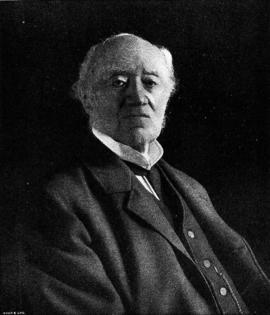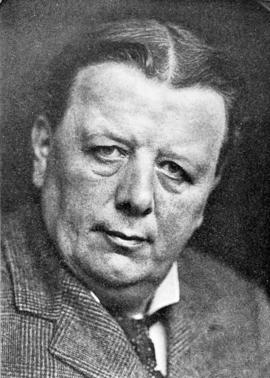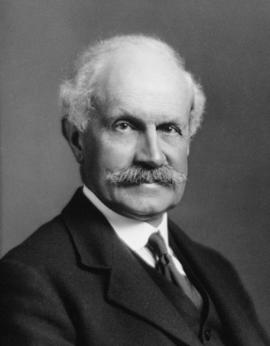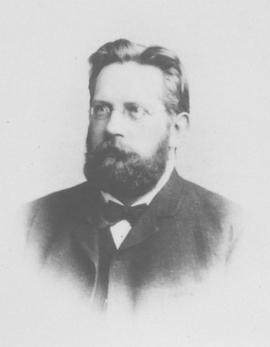Wilhelm Lilljeborg was a Swedish zoologist. He is known for his work on the Cladocera of Sweden, and on the Balaenoptera. He was a member of the Royal Swedish Academy of Sciences from 1861
Laws was born in Whitley Bay, Northumberland and educated at Dame Allan's School, Newcastle upon Tyne, and St Catharine's College, Cambridge, where he was an Open Scholar.
He started his career as a zoologist on the Falkland Islands Dependencies Survey in 1947, where he investigated the ecology of elephant seals in the South Orkney Islands and South Georgia. These formed the subject of his 1953 Cambridge PhD. After spending a season as a whaling inspector, he joined the National Institute of Oceanography 1955-1961 where he studies great whales and elephant seals.
Outside Antartica, he was also an expert on large African mammals. In 1960 he was appointed Director of the Nuffield Unit of Tropical Animal Ecology in Uganda. Over the next eight years his research focused on hippopotamus and elephant ecology. He spent a year as Director of the Tsavo Research Project in Kenya 1967-1968.
He returned to Cambridge in 1968 to resume his Antarctic research. In 1969 he became Head of the Life Sciences Division of the British Antarctic Survey. He became Director in 1973, a post he held until retirement in May 1987. He was Secretary of the Zoological Society of London 1984-1988. He was Master of St Edmund's College, Cambridge 1985-1996, and he was a member of the Scientific Committee of the International Whaling Commission.
In 1954 Laws won the Bruce Memorial Prize for his work on the ecology of elephant seals. He was awarded the Polar Medal in 1975. He was elected a Fellow of the Royal Society in 1980, and was appointed Commander of the Order of the British Empire. In 1991 he was awarded an Honorary Doctor of Science degree by the University of Bath.
On his retirement, a fund was established for a prize to be awarded in recognition of the achievements of outstanding young scientists of the British Antarctic Survey. The Laws Prize continues to be awarded annually.
Sir Edwin Ray Lankester was an invertebrate zoologist and evolutionary biologist. He held chairs at University College London and Oxford University. He was the third Director of the Natural History Museum, and was awarded the Copley Medal of the Royal Society
Sir John Graham Kerr was a British embryologist and Unionist Member of Parliament. He is best known for his studies of the embryology of lungfishes
William Temple Hornaday was an American zoologist, conservationist, taxidermist and author. He served as the first director of the New York Zoological Park, known today as the Bronx Zoo, and he was a pioneer in the early wildlife conservation movement in the United States
Sir Martin Wyatt Holdgate was born in 1931 and grew up in Blackpool. He was educated as Arnold School. He then attended Cambridge University as an undergraduate at Queens' College, Cambridge from 1949, graduating in 1952 with degrees in zoology and botany and, subsequently, a doctorate in insect physiology.
He taught at Manchester University, Durham University and Cambridge, as well as undertaking expeditions to Tristan da Cunha, south-west Chile and the Antarctic. He was CHief Biologist to the British Antarctic Survey, then research director of the Nature Conservancy Council and, for eighteen years, Chief Scientist and head of research at the Department of the Environment. Subsequently, he was Director General of the International Union for Conservation of Nature. After his retirement he was a member of the Royal Commission on Environment Pollution and served as co-chair of the Intergovernmental Panel on Forests, and Secretary of the UN Secretary General's High-Level Board on Sustainable Development. He was President of the Zoological Society of London 1994-2004.
Lancelot Thomas Hogben was a British experimental zoologist and medical statistician. He developed the African clawed frog (Xenopus laevis) as a model organism for biological research in his early career, attacked the eugenic movement in the middle of his career, and popularised books on science, mathematics and language in his later career
Franz Martin Hilgendorf was a German zoologist and palaeontologist. Hilgendorf's research on fossil snails from the Steinheim crater in the early 1860s became a palaeontological evidence for the theory of evolution published by Charles Darwin in 1859. Darwin acknowledged the findings of Hilgendorf and referred to his research in the sixth edition of On the Origin of Species, 1872.
Hedley was a British zoologist. He was born in 1928 to Henry Armstrong Hedley and Margaret Hopper. He was educated at Durham Johnston School, followed by King's College at Durham University (now Newcastle University) where he obtained a Bachelor's degree in Zoology and a PhD in 1953.
He was first employed at the Natural History Museum in 1955. In 1971 he was appointed Deputy Director of the museum and in 1976 became Director of the museum. In 1988 he retired from the Natural History Museum.
From 1977 to 1980, Hedley was the Honorary Secretary of the Zoological Society of London.
Hedley married Valmai Mary Griffith in 1957 and they had one son. He died aged 77 on 11th July 2006.
Paul H Harvey is a British evolutionary biologist. He is Professor of Zoology and was Head of the Zoology Department at the University of Oxford from 1998 to 2011 and Secretary of the Zoological Society of London from 2000-2011, holding these posts in conjunction with a professional fellowship at Jesus College, Oxford.
He was educated at the University of York, where he was awarded a Bachelor of Science and a Doctor of Philosophy degree.
He was elected a Fellow of the Royal Society in 1992. He was awarded the Scientific Medal and the Frink Award from the Zoological Society of London, the J. Murray Luck Award from the National Academy of Sciences, and the University of Helsinki Medal. He was appointed Commander of the Order of the British Empire in 2008.



